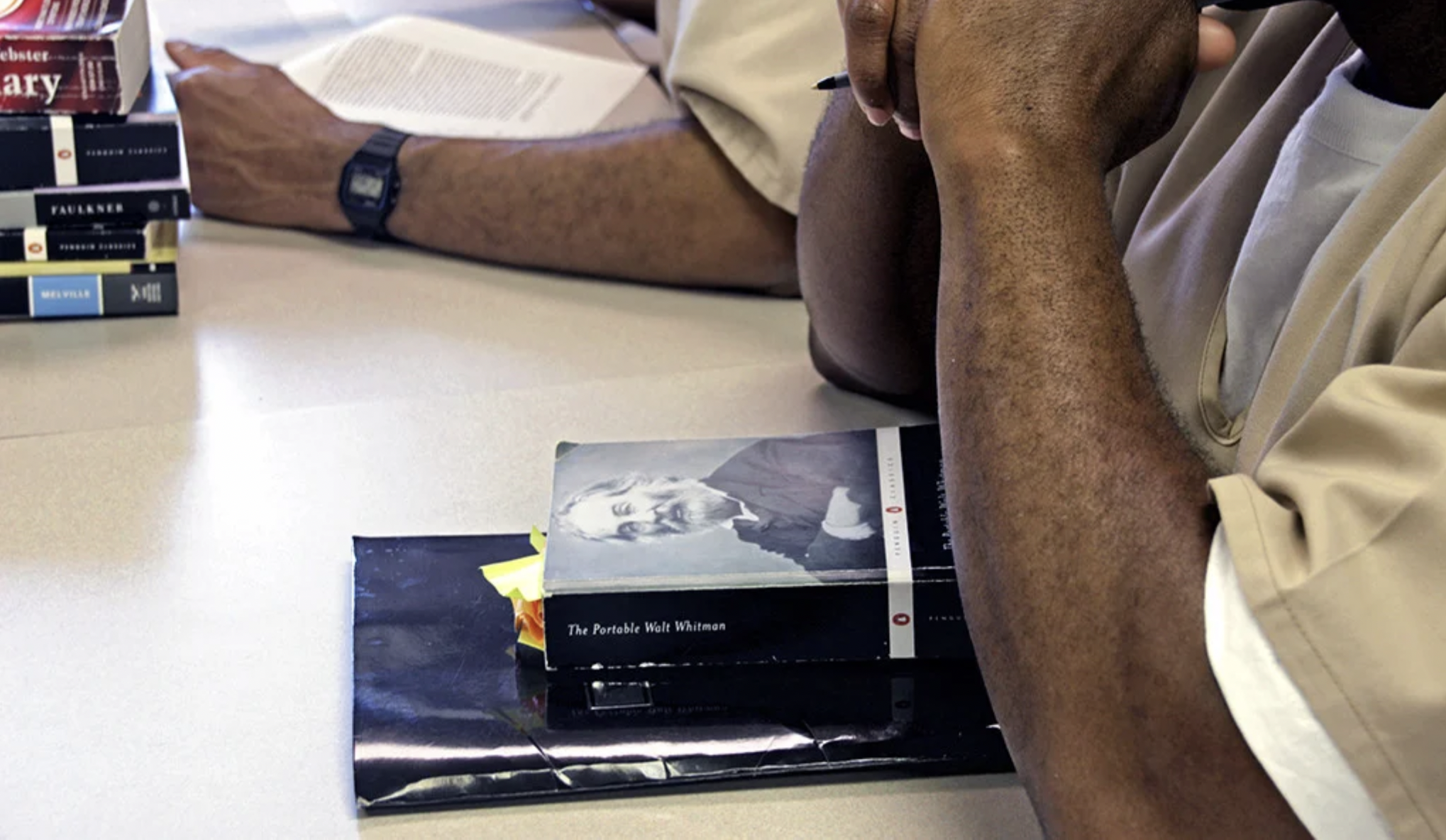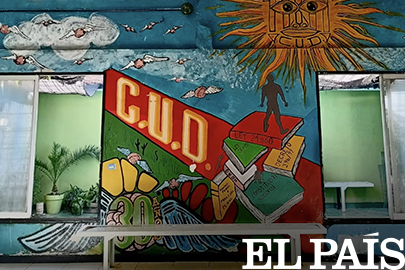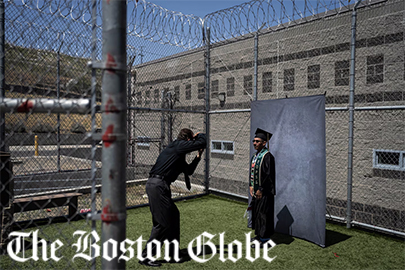With a $1.5 million grant from the Mellon Foundation, YPEI now has the capacity to offer a wider range of courses, establish a fellows program and partner with the University of New Haven.
This article was originally posted on the Yale Daily News, which can be found here.

Courtesy of Kendall Teare
Incarcerated students enrolled in the Yale Prison Education Initiative will walk across the stage in the program’s first ever commencement ceremony this spring.
YPEI, officially founded at Dwight Hall in 2016 by Yale alumna Zelda Roland ’08 GRD ’16, offered its first for-credit courses in the summer of 2018 at MacDougall-Walker Correctional Institution, a high to maximum-security facility for adult males.
The YPEI received a $1.5 million grant two years ago to further support its mission of bringing rigorous, credit-bearing Yale courses to incarcerated students in the state of Connecticut. The donor, the Mellon Foundation, serves as the largest benefactor of arts, culture and the humanities in the nation. The most substantial development that ensued from the additional monetary funds was the expansion of the YPEI to a second prison in the fall of 2022 — the program now also provides classes at the Federal Correctional Institution, a low-security women’s prison in Danbury.
“Five years ago this summer marks the moment we first started bringing real, rigorous credit-bearing courses on Yale transcripts to incarcerated students in Connecticut,” Roland said. “We are also celebrating YPEI’s launch this year at a second facility to reach incarcerated women at Danbury federal prison, where we believe YPEI is the first college program that has been offered to students there.”
This development is one of many recent firsts for the YPEI, as the organization also formed a partnership with the University of New Haven in April 2021, allowing the Yale credits earned through YPEI instruction to be transferred towards college degrees from UNH.
Additionally, the program, which began with only English courses, has expanded their course offerings to include philosophy, sociology, African American studies, Latin and physics. Graduates from the MFA program in the Yale School of Art have also provided lessons to the incarcerated students.
The availability of the content continues to increase as well, expanding from four to 30 classes per year that now run year-round. Academic resources for the students have also grown, with funds now allocated for libraries, tutors and further support from the Poorvu Center for Teaching and Learning.
To conclude the 2022-2023 academic year, the Dwight Hall program is planning the first-ever college graduation ceremony at MacDougall-Walker. The students will graduate with a broad liberal arts associate’s degree in general studies.
The ceremony will include an invocation given by Yale University Chaplain Sharon Kugler, while Sheahon Zenger, the interim president of UNH, will award the diplomas.
The impacts and rewards of YPEI’s initiatives have a major impact on their students, according to YPEI alumnus Marcus T. Harvin, allowing them to overcome the challenges of incarceration.
According to the YPEI website, only 22 percent of individuals in state prisons have received some form of postsecondary education — the program aims to increase this statistic each year.
“The YPEI served as an oasis while I was incarcerated; and upon my release, it has served as a catalyst for many lasting and fruitful connections,” Harvin wrote in an email to the News.
While reflecting on his time in YPEI courses, as well as his involvement in the College to Career fellowship offered by YPEI, Harvin expressed great appreciation for the opportunities his education has given him.
He said that not only does he recognize the merit in earning a college degree, but also values the privilege of learning with other undergraduates “void of the stigma of being a convicted felon.”
“I thought it near felonious to pass on an opportunity to be educated by an Ivy League institution, especially while imprisoned,” Harvin wrote. “I was born and raised in New Haven, so therefore, I am well acquainted with the esteem and importance of Yale University. As a result, I always harbored a hidden desire to be educated by this institution.”
This “implicit power” that Yale University possesses is not lost upon Roland, as she said that YPEI receives inquiries almost daily regarding their program and the ways in which they have succeeded.
The YPEI currently serves as a model for many peer institutions around the country who are attempting to bring rigorous curricula to students behind bars, according to Roland.
“When Yale acts, others listen and follow,” Roland said.
As such, Yale is part of the Bard Prison Initiative’s national Consortium For the Liberal Arts in Prison, which is a network of colleges and universities working towards the extension of liberal arts education in prisons. The Bard Prison Initiative’s core mission is to provide classes that are not altered or diluted from campus to prison, on the basis that incarcerated students deserve and are capable of succeeding with the same rigor found within a university.
As influential as YPEI’s work is, the exchange between students and instructors is mutually beneficial, according to Roderick A. Ferguson, an educator at MacDougall-Walker.
“If you had told me that there was a classroom experience that promised rigorous engagement from the students every session, I wouldn’t have believed you,” Ferguson wrote in an email to the News. “But I’ve found that there. Students there do not waste time, and they do not waste their intellects.”
The Yale Prison Education Initiative plans to admit two new cohorts, one from each participating prison, for the upcoming academic term in the fall.
Correction 4/27: A previous version of this article mischaracterized the project behind the Mellon Foundation’s donation to YPEI.
Correction 5/1: A previous version of this article incorrectly described the Bard Prison Initiative as a national consortium itself



